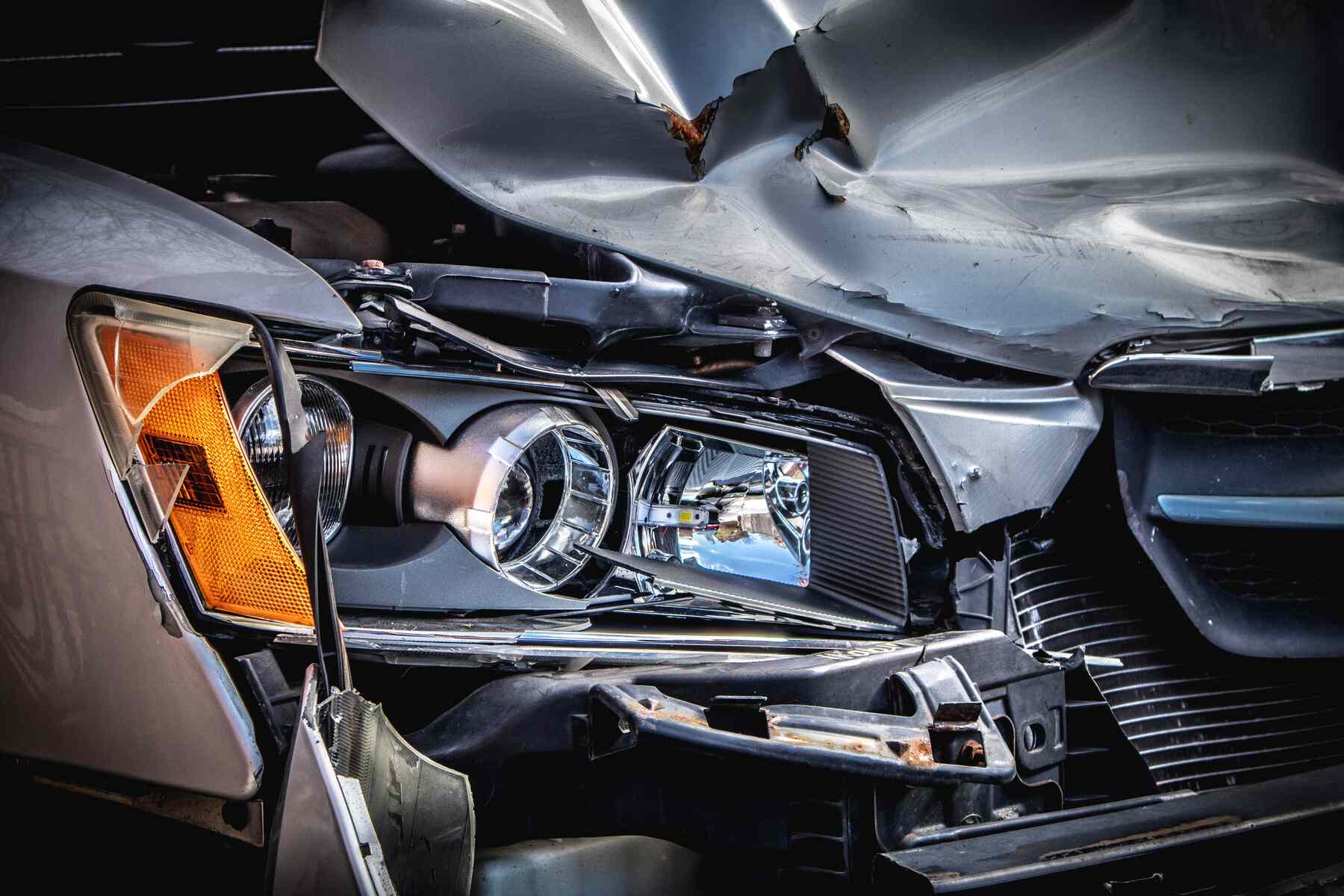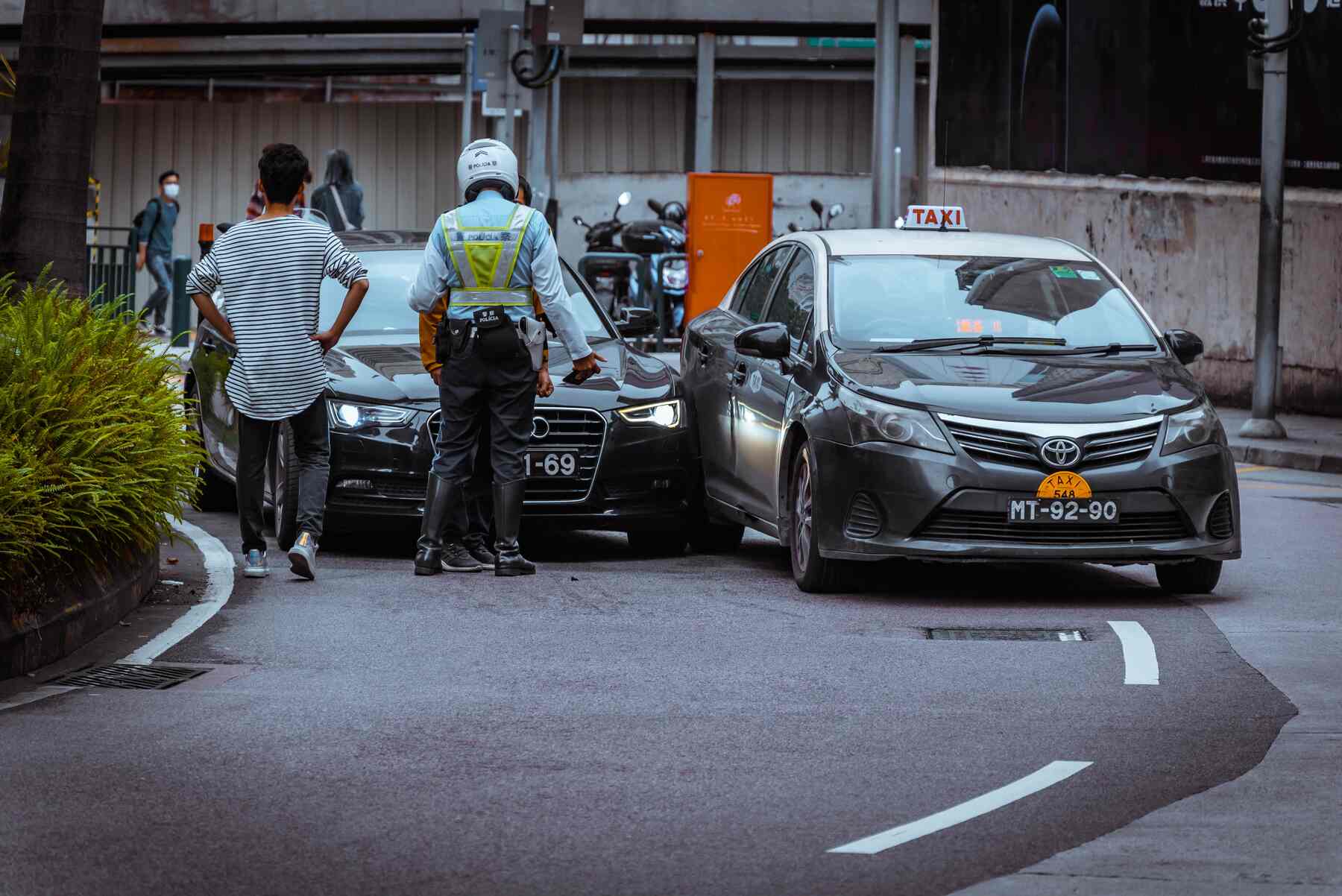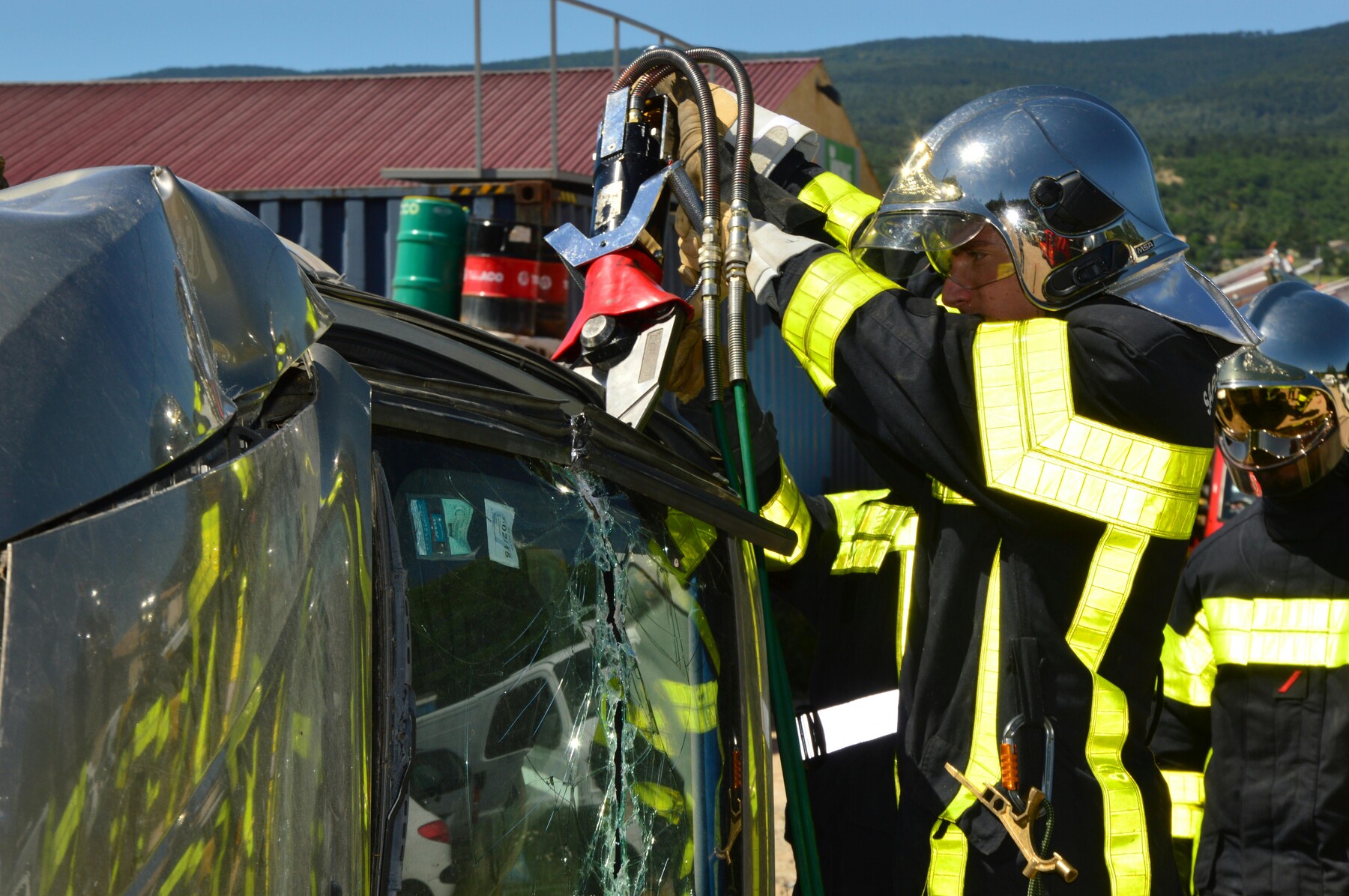When tragedy strikes in the form of a job-related car accident, you’re left wondering who is responsible for work related car accidents as medical bills pile up and income stops flowing. Our car accident lawyers have helped victims navigate the most complex vehicle accident cases. Learn how to determine liability using several factors to help you recover compensation for your injuries and suffering.
Who Is Responsible for Work Related Car Accidents in California?
The person or entity responsible for the accident, whether by vicarious or direct liability, will be the one responsible for paying for damages. Damages could include medical expenses, lost wages, pain and suffering, and other losses. However, determining fault in a work vehicle accident can be complex and depends on the unique circumstances surrounding the accident.
Knowing who is legally responsible for your accident can make the difference between struggling alone and being able to receive compensation for injuries sustained during job-related activities. Contact an experienced attorney today to evaluate your case and protect your rights during this difficult time.
Who Can Be Held Responsible in a Work Related Vehicle Accident?
The question of responsibility in work related vehicle accidents is more complex than you might think. In work related car accidents, potentially liable parties could include:
1. Employer Liability
Generally, California employers may be vicariously liable for any damages caused by their employees if they were on the job or acting within their scope of employment when the accident occurred. Under California’s “Respondeat Superior” doctrine (Cal. Civ. Code § 2338), an employer is vicariously liable for the wrongful acts of employees committed within the scope of employment.
- The employer’s commercial auto insurance policy will typically cover third-party damages if an employee gets in an auto accident while performing their job duties or a work related task. This is true whether the employee was driving a company car or their personal car.
- A third party may be another motorist or road user, such as a pedestrian or bicyclist. They may be able to file a claim against the employer’s insurance company to seek damages for medical expenses, lost income, property damages, and pain and suffering.
- The employer could be liable for other reasons, such as negligent hiring or lack of employee training.
 2. Employee Liability
2. Employee Liability
In some cases, the employee may be liable for third-party damages rather than the employer. Generally, if the accident occurs outside of the scope of employment, then the employee may be responsible. California recognizes certain exceptions under the “Coming and Going Rule.”
Under California’s “Coming and Going” Rule, employers are generally not liable for accidents occurring during an employee’s commute. However, exceptions exist when:
- The “Special Mission” Exception applies (if the employer requests the employee to complete a work-related task during their commute).
- The employee was driving a company-provided vehicle, which could establish employer liability under the “Required Vehicle” Exception (Hinman v. Westinghouse Elec. Co., 2 Cal. 3d 956, 962 (1970).
If so, the employee’s personal car insurance would apply to the accident. Examples of when the employee may be liable include the following situations:
- Employee was commuting to or from work
- Employee was off duty
- Employee was using the company car for personal errands
- Employee was using their company vehicle to commit a crime
3. Third-Party Liability
If another party that is not the employee is at fault for the accident, that party’s insurance would typically be responsible for covering damages incurred by the employee. Examples of third parties who may be liable include:
- Another driver: If another driver was negligent or violated traffic laws, leading to the accident, they could be liable for injuries and damages.
- Vehicle or parts manufacturer: A manufacturer may be liable if a vehicle or parts defect contributed to or caused the accident.
- Government entity: If poor road conditions, such as potholes, uneven pavement, or inadequate signage, contributed to or caused an accident, the government entity responsible for the roads may be liable.
What Types of Vehicle Accidents Happen in the Workplace?
Some examples of work related accidents involving vehicles include, although not limited to:
Request Your Free Consultation
"*" indicates required fields
1. Single-Vehicle Accident
A single-vehicle accident only involves the employee driving either a personal vehicle or a work vehicle. For example, an employee could lose vehicle control and crash into an inanimate object.
2. Accident Between Two Company Vehicles
It’s not uncommon for there to be multiple work vehicles operating. If two work vehicles collide, it can result in serious damage and injuries to both drivers and nearby workers.
3. Accident Between a Work Vehicle and a Third-Party Vehicle
This example involves a work vehicle, such as a delivery truck, crashing with a third-party motorist.
 How Much Is Your Settlement Worth?
How Much Is Your Settlement Worth?
Schedule a completely free, no obligation consultation with our team
Schedule Consultation
4. Struck-By Accident Involving a Work Vehicle
Some workplaces involve both pedestrian workers and vehicle operators sharing the same space. A worker may be hit by a moving work vehicle.
5. Struck-By Accident Involving a Third-Party Car
In certain work environments, such as road construction, workers risk being hit by moving vehicles.
6. Back-Over Accidents
Back-over accidents happen when a vehicle reverses and hits a worker behind the car. Large vehicles with significant blind spots may be at risk of backing over a pedestrian while working.
 What Is Vicarious Liability in California?
What Is Vicarious Liability in California?
Vicarious liability is a legal principle where one party is held responsible for the acts of another based on their relationship rather than any wrongdoing on the part of the first party. Under California’s vicarious liability laws, an employer can be liable for accidents caused by its employees if the accident occurred within the employee’s scope of employment.
A few situations in which an employer may be liable for damages caused by an employee’s car accident include:
- Employee was performing their job during the accident
- Employee was conducting approved business during the accident
- Employee was driving from business site to business site under the terms of employment
- Employer benefited from the employee’s actions when the accident happened
Liability When a Crash Occurs While an Employee Is On the Clock
Under the principle of respondeat superior, employers are generally liable for accidents caused by employees acting within the scope of their employment. Employer liability applies when the employee was performing work related tasks that benefited the company or was following employer directives at the time of the crash.
Liability When a Crash Occurs While an Employee Is Off the Clock
While the “coming and going” rule typically protects employers from liability during commutes and breaks, providing a vehicle to an employee with a history of dangerous driving can establish employer liability even when the employee is off-duty. Exceptions to standard liability rules exist, making consultation with a specialized attorney advisable for accident victims.
What Types of Compensation Are Available for Work Related Car Accidents?
The types of compensation available to you may depend on whether you file a personal injury claim or a workers’ compensation claim. Under California’s workers’ compensation system, employees injured in a work related accident may be eligible for the following benefits:
- Medical expenses
- Temporary disability benefits
- Permanent disability benefits
- Supplemental job displacement benefits
- Return-to-work supplement
- Death benefits
Workers’ Compensation vs Personal Injury Claims
Unlike workers’ compensation, personal injury claims allow accident victims to seek non-economic damages, such as pain and suffering, under California Civil Code § 1431.2, provided that another party’s negligence contributed to the accident. Non-economic damages compensate accident victims for the physical pain and emotional trauma they may experience due to the accident.
If someone else’s negligence resulted in your damages, you may be able to file a personal injury claim to seek compensation outside of the limits of workers’ compensation benefits. Economic damages are monetary losses that may include the following types of damages:
- Past and future medical expenses
- Lost wages
- Loss of future earning capacity
- Property damages
Examples of non-economic damages you may be able to recover include:
- Physical pain
- Emotional distress
- Psychological trauma
- Loss of enjoyment of life
- Loss of consortium
- Disability disfigurement
When Can an Employee Seek Workers’ Compensation?
You may be eligible for workers’ compensation benefits if you acted within the scope of your employment when the accident took place. Meanwhile, you may receive workers’ compensation benefits if the accident happened when you were performing your work related duties. Regardless of accident fault, workers’ compensation benefits generally include the following:
- Medical expenses
- Temporary disability benefits
- Permanent disability benefits
- Supplemental job displacement benefits
- Return-to-work supplement
- Death benefits
However, not every accident that happens during work hours or in a work vehicle will be covered by workers’ compensation. For example, you may not be eligible if you were commuting to or from work or running personal errands. Additionally, if you were driving under the influence of drugs or alcohol during a car accident, you may not be eligible.
Consult with an experienced Los Angeles car accident attorney about your situation. Car accident lawyers can help you understand your best options for seeking compensation.
What Should I Do After a Work Related Auto Accident?
We have over 40 years of combined experience helping auto accident victims obtain financial compensation for their injuries and damages. If you have suffered damages in a work related car accident, we encourage you to contact us for a free consultation and guide you in taking action for job-related vehicle accidents.
1. Call for Help
At the accident scene, contact 911 to obtain a police report and gather witness statements, as these serve as vital evidence in personal injury claim cases. Seek immediate medical attention to properly document work related injuries for both workers’ compensation and employer liability claims.
2. Report to Your Company
Notify your employer about the accident using their commercial vehicle, as missing state-mandated reporting deadlines could jeopardize your workers’ compensation claim. Employer liability may be covered through an employer’s insurance even when using a personal vehicle for work purposes.
3. Collect Evidence and File an Accident Report
After a job-related car accident, gather comprehensive evidence like photos and driver details to solidify the at-fault driver’s responsibility at the accident scene. This also guarantees that a thorough accident report is filed, which is vital for the legal process to help you receive workers’ compensation benefits.
4. Consult a Car Accident Lawyer and Determine Fault
To pursue compensation, consult vehicle accident lawyers who can help determine fault, establish if another party should be held liable, and guide you through the legal complexities of your case. A personal injury lawyer can review your case and provide legal guidance in determining whether you may have a workers’ compensation or personal injury claim.
 Related Questions
Related Questions
Can You File a Lawsuit Against an Employer After a Car Accident?
An employee cannot sue their employer for injuries sustained in a car accident assuming there is workers’ compensation insurance carried by the employer. An employee injured in a car accident can sue a responsible third party that caused them injuries (i.e. someone else other than the employer that caused the accident). Likewise, a third party injured in a car accident can sue the at fault employee and their employer in most circumstances.
Who Pays for the Accident in a Company Vehicle?
In most cases, the at-fault driver’s insurance typically pays for damages in a company vehicle accident, though employers may be held liable if their employee was acting within the scope of employment. When multiple parties share responsibility, insurance companies may negotiate settlements based on the percentage of fault assigned to each party involved.
Is My Employer Responsible or Liable for Company Cars?
Employers are generally held liable for accidents involving company cars when employees are performing job-related activities, especially if the employer fails to properly maintain the vehicle or adequately train the driver. Victims injured in these accidents may pursue a personal injury claim against both the driver and the company to secure appropriate compensation.
Is My Employer Responsible for Damage to My Vehicle in California?
In California, your employer can be held responsible for damage to your personal vehicle if it occurred while you were using it for job-related purposes within the scope of your employment. You can seek damages from your employer for repairs, diminished value, and rental car expenses while your vehicle is being fixed.
Is an Independent Contractor Eligible for Workers’ Compensation?
As with many other states, independent contractors are generally not eligible for workers’ compensation benefits in California. Independent contractors are considered self-employed rather than employees of a company.
Request a Free Consultation With a Car Accident Lawyer Today
If you have been injured in a work related car accident, do not hesitate to contact the Law Offices of Steers & Associates. Our Los Angeles car accident attorneys offer a free initial consultation to discuss your unique situation. We can help you understand your potential legal options for seeking compensation for medical bills, lost income, and other losses.

Allen Vaysberg practices personal injury law and works tirelessly to defeat the tactics of insurance companies and large corporations who try to deny justice and fair compensation to injured people.
 2. Employee Liability
2. Employee Liability What Is Vicarious Liability in California?
What Is Vicarious Liability in California?
 Related Questions
Related Questions